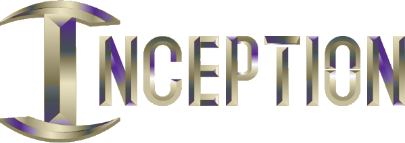Depression is a serious mental health condition that significantly impacts both your mental as well as physical well-being. In contrast to fleeting periods of sadness and low energy, depression is a more intense and persistent condition that affects various aspects of your life.
When depressed, your ability to perform daily tasks, maintain relationships, and enjoy life can be profoundly affected. Depression can also potentially aggravate existing health conditions you might have, such as heart disease, diabetes, and chronic pain.
Taking the necessary steps to seek support and treatment is crucial for overcoming depression and enhancing your overall well-being.
At Inception Telehealth & Wellness, we offer a comprehensive range of mental health services, including medical consultations, diagnoses, and prescriptions. Our dedicated team also provides specialist consultations to manage and treat depression effectively.
Depression is a complex mood disorder characterized by feelings of hopelessness, emptiness, sadness, and disinterestedness in life. It is marked by an inability to experience pleasure that leads to an increase in the risk of suicidal thoughts or behaviors.
This complex condition not only affects your emotions but also impacts your thoughts and daily habits, such as sleep, appetite, and work.
Depression manifests in multiple types. Two of the most common types of depression are:
Commonly known as clinical depression, MDD is the most prevalent and severe type of depression. Its symptoms include a persistent sad mood, feelings of hopelessness, and a loss of interest in activities.
MDD symptoms typically endure for a minimum of 2 weeks and often lead to severe emotional distress. This form of depression impacts your daily activities and can also cause physical issues.
Also known as dysthymia disorder, PDD represents a milder yet persistent form of depression. Unlike major depressive disorder, the symptoms of PDD are less severe but can last a much extended period, usually for at least two years.
These symptoms include chronic feelings of sadness and worthlessness, which lead to decreased productivity and a poor quality of life.
Treatment-resistant depression (TRD) is a complex mental health condition that occurs when standard treatments, such as antidepressants and psychotherapy, don't effectively improve symptoms or when these symptoms improve temporarily and then return.
This condition poses significant challenges as it contributes to increased disability, cost, and suicide rates. To manage TRD, various integrated therapeutic strategies are employed, including optimization, augmentation, combination, and switch therapies, and potentially, the use of rapidly acting antidepressants like ketamine.
Depression can result from a variety of factors, including both biological and circumstantial aspects. Several potential causes of depression include:
- Brain chemistry and structure
- Hormone levels in females during the menstrual cycle and menopause
- Family history of depression or another mental disorder
- Childhood trauma
- Medical conditions such as insomnia, stroke, heart attack, and cancer
- Lifestyle habits such as excessive weight gain and substance abuse
- Pain, including emotional or chronic physical pain for a long period
Understanding the potential causes of depression is crucial for effective treatment. If manageable, the treatment approach will target and address the specific causes to better manage the condition.
Certain medications can be utilized to alleviate the symptoms of depression. These medications work by affecting neurotransmitters like serotonin and norepinephrine to alleviate depressive symptoms.
These may include antidepressants, mood stabilizers, and antipsychotic drugs.
Hormonal therapy for depression involves the use of hormones or medications that affect hormone levels to alleviate symptoms of depression.
Hormones play a complex role in the regulation of mood, and changes in hormone levels can impact neurotransmitters and brain function, potentially contributing to depressive symptoms.
While traditional antidepressant medications primarily target neurotransmitters like serotonin, norepinephrine, and dopamine, hormonal therapy focuses on addressing hormonal imbalances that may be related to depressive symptoms.
It's important to note that the use of hormonal therapy for depression is often targeted at specific people with identified hormonal imbalances or disorders. At Inception Telehealth & Wellness, our experienced health providers carefully assess your specific symptoms and medical history to determine the most appropriate treatment plan for your individual needs.
Certain hormone-related disorders and conditions can contribute to mood disruptions and depression in both men and women. Conditions such as polycystic ovary syndrome (PCOS) and menopause in women, as well as low testosterone levels in men, have the potential to impact mental well-being.



